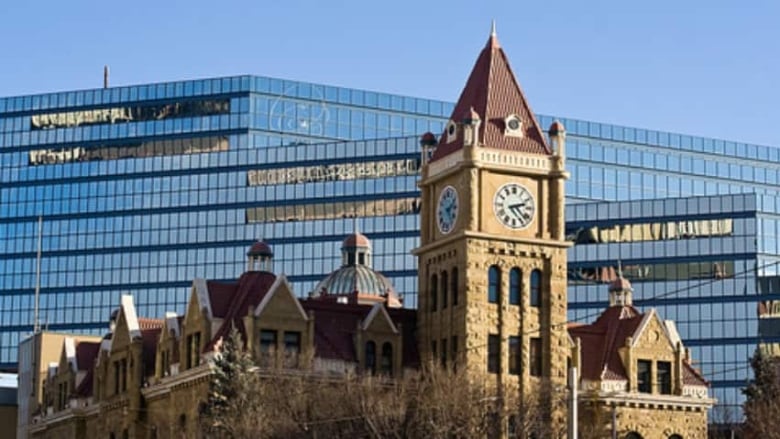Under new budget, median household will pay $150 more in property tax
Council approves 1.5 per cent hike, will dip into savings to reduce to zero

By a vote of 8-7, Calgary city council approved a 1.5 per cent tax hike Friday and cut more than 138 city jobs in an effort to cushion looming reductions to police and city services.
According to Calgary Mayor NaheedNenshi, most of the 138 city job cuts will be layoffs, the majority of which will land in Calgary Transit.
Council voted to allocate $24 million in one-time funds from the corporate savings account to effect a tax freeze in 2020.
When all the dust has settled, it means Calgary residents living in a median-priced home ($456,000)will pay more in property taxes approximately $150 extra in 2020.
That's a 7.51 per cent shift for residential accounts, with the ratio now set at 52 per cent residential and 48 per cent non-residential.
Sutherland: "it is what it is." He wishes there was a tax freeze for next year. But he says "we have to" do this shift to support Calgary businesses. "Do I like this increase? God no." #yyccc
—@CBCScottThat increase is separate from what homeowners will pay due toan increase in the education property tax.
The amended motion from councillors Diane Colley-Urquhart and JyotiGondek will seetaxes raised by 1.5 per cent, yielding$26.5 million in revenues, $13 million of which would go to police, $6.5 million to low-income transit and $4 million to restore funding cut to Calgary Transit last July.
The motion would also seek to direct an external consultant next year to attempt to find savings in next year's budget to turn the 1.5 per cent tax hike into a zero per cent tax hike by the end of 2021.
Coun. George Chahal said he had concerns with not making decisions immediately and leaving them for future councils.
"This is creative accounting. It's just a different way of looking at what the (original) motion was," he said. "But my concern here is, and I think it's been addressed, it's kicking the can down the road we're then making these tough decisions a year out from now, or two years out from now. So that's my concern. We need to make these decisions today."
Gondek said decisions on funding would be kicked down to the next council only if this council chooses to do so.
"That's actually not a fact. In fall of next year, we've directed administration to come to us with the preliminary report of the group they are going to engage with to help us find service efficiencies," she said."Well before the next election, if we choose to, we'll decide what that's going to look like."
Police funding
The Calgary Police Servicehas had to contend with reduced funding as part of the provincial budget to the tune of $13 million.
The province will keep a greater share of revenues from traffic tickets at a rate of$10 million a yearand will charge police for forensic testingat a cost of $2 million. Cannabis-related spending will cost Calgary police approximately $1 million per year.
Prior to today, thebudget would havecovered only a portion of that funding, leaving thepolice serviceto deal with an $8.4-million deficit. Due to the amended budget, funding has been maintained at current levels.
- 'We can't absorb further cuts', says Calgary police chief as council debates budget
- Here's how much money Calgary police actually get from the province
Speaking prior to today's budget approval, Calgary police ChiefMark Neufeld told council a tax freeze would mean 85 positions would need to be cut at a time when crime rates in the city are going up quicker than averages in the province and in the rest of the country.
The city budget also meansa new fire station will be deferred.
Transit fees
Council voted 9-6 to keep low-income transit passes at 2019 levels. Approximately $6.5 million will be allocated toward keeping those rates consistent.
There was an option to increase the passes to $20 in January, but that motion was voted down.
Cash faresand monthly passes for most transit riders will increase on Jan.1. Single fares for adults aged 18 to 64 will increase slightly from $3.40 to $3.50, while monthly passes will increase from $106 to $109.
With files from Scott Dippel and Drew Anderson












_(720p).jpg)


 OFFICIAL HD MUSIC VIDEO.jpg)
.jpg)



























































































